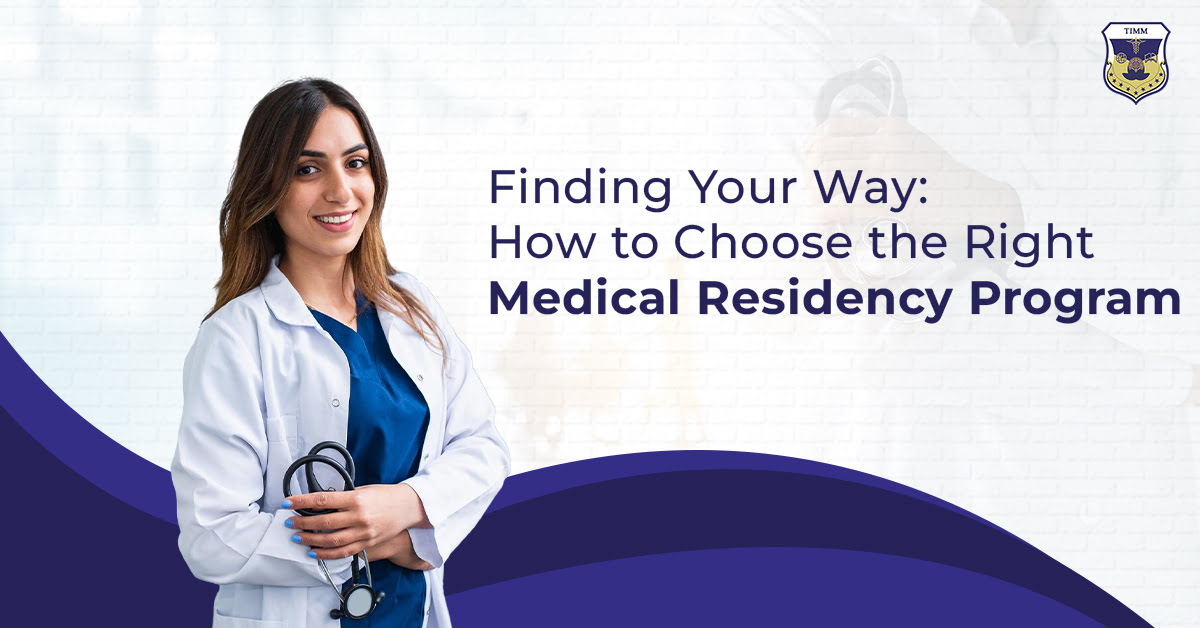Blog Summary
- Introduction
- Understanding Medical Residency Programs
- Criteria for Choosing the Right Medical Residency Program
- Gaining Practical Experience Through Medical Externship Programs
- Crafting a Compelling Residency Personal Statement
- Research and Rankings: Identifying Top Medical Residency Programs
- Advantages of Residency in the USA at Texila
- Conclusion
- FAQ
Introduction
Navigating the landscape of medical residency programs marks a pivotal journey for graduates, impacting career trajectories and personal fulfilment. A well-suited program harmonizes with individual interests, learning styles, and life aspirations, fostering an environment conducive to skill honing and networking. Assessing factors like program reputation, faculty expertise, and work-life balance aids in making informed decisions crucial for professional growth. Engaging in thorough research, introspection, and mentorship paves the path toward a fulfilling medical career shaped by residency experiences and aligned with personal values and ambitions.
Understanding Medical Residency Programs
Medical graduates’ journey marks the transition from theoretical learning to hands-on practice. This choice can significantly influence your career path, professional growth, and personal satisfaction. A well-chosen residency program aligns with your speciality interests, learning style, and life goals, offering a conducive environment for skill enhancement and networking.
When selecting a residency, consider program reputation, faculty expertise, resident satisfaction, and geographical location. Assess the balance between clinical practice, research opportunities, and work-life integration. Networking with current and former residents, attending open houses, and participating in interviews can provide invaluable insights.
Remember, the right program sharpens your clinical skills and moulds your professional identity. It’s where you’ll forge lasting friendships and mentorships and determine your subspecialty. Therefore, thorough research, self-reflection, and strategic planning are essential in finding your path in the vast world of medical residency programs.

Residency application services offer valuable assistance and guidance to medical graduates navigating the complex process of selecting and applying to residency programs.
Criteria for Choosing the Right Medical Residency Program
1. Accreditation and Reputation
Look for programs accredited by reputable bodies like the Accreditation Council for Graduate Medical Education (ACGME) in the United States. Accreditation ensures that the program meets specific standards of quality and excellence in medical education.
Research the residency program’s reputation among peers, mentors, and alumni. Consider factors such as the program’s board pass rates, faculty expertise, research opportunities, and clinical exposure. A program with a strong reputation often provides better training and networking opportunities, which can benefit your future medical career.
2. Specializations Offered
Several critical factors warrant consideration when evaluating these programs. Specializations are paramount, as they define the focus of your training and future practice. From primary care to specialized fields like surgery or psychiatry, each specialization offers unique opportunities for growth and impact.
Understanding your passions and career aspirations is crucial in selecting a program aligned with your goals. Factors such as program reputation, location, curriculum structure, and faculty support also play pivotal roles in ensuring a fulfilling residency experience.
3. Location and Lifestyle
When considering a medical residency program, location and lifestyle are crucial in determining your overall experience and satisfaction. Think about the geographical setting of the program. Do you prefer urban, suburban, or rural environments? Consider factors such as climate, cost of living, and proximity to family and friends.
Lifestyle amenities like recreational activities, cultural offerings, and dining options can significantly impact your quality of life during residency. Moreover, assess the availability of support services for residents, such as housing assistance, transportation, and wellness programs. Finding a program that aligns with your preferred location and lifestyle can provide a fulfilling residency experience.
4. Assess Work-Life Balance and Support Services
Maintaining a healthy work-life balance is essential for medical professionals’ well-being and long-term success. Evaluate the workload, call schedules, and support services each residency program offers to ensure they prioritize resident wellness and provide adequate support systems. Look for programs that offer mentorship, counselling services, and personal and professional development opportunities.
Gaining Practical Experience Through Medical Externship Programs
Medical externship programs provide invaluable practical experience for aspiring healthcare professionals. These programs offer opportunities for students to immerse themselves in real-world healthcare settings, working alongside experienced professionals and gaining firsthand exposure to clinical practices.
One key benefit of medical externships is the opportunity for students to apply theoretical knowledge gained in the classroom to actual patient care scenarios. By participating in hands-on activities such as patient assessments, diagnostic procedures, and treatment planning, students develop crucial clinical skills and learn to navigate the complexities of healthcare delivery.
Furthermore, externship programs provide a platform for networking and mentorship, allowing students to forge connections with medical experts who can provide direction and assistance throughout their career journey.
Crafting a Compelling Residency Personal Statement
It requires a delicate balance of honesty, passion, and professionalism. Start by introspecting deeply about your journey into medicine, highlighting essential experiences that shaped your desire to pursue your chosen speciality. Be authentic and sincere, sharing personal anecdotes illustrating your commitment and resilience. Emphasize the unique qualities, skills, and achievements that distinguish you from other applicants.

Structure your statement with a clear introduction, body paragraphs detailing your motivations and qualifications, and a powerful conclusion reaffirming your dedication and readiness for the next phase of your medical journey. Finally, meticulously edit your statement for clarity, coherence, and grammar. A compelling personal statement should showcase your strengths and leave a lasting impression on the selection committee, compelling them to see you as an ideal candidate for their program.
Research and Rankings: Identifying Top Medical Residency Programs
Identifying top medical residency programs requires comprehensive research and consideration of various factors. One crucial aspect is the program’s reputation, often measured by its ranking in national surveys or prestigious institutions such as U.S. News & World Report or Doximity. These rankings consider criteria like research opportunities, faculty expertise, clinical experiences, and resident satisfaction.
Additionally, the program’s accreditation status by organizations like the Accreditation Council for Graduate Medical Education (ACGME) ensures quality training and compliance with standards. Residency programs affiliated with renowned medical institutions or academic centres often offer cutting-edge technology, diverse patient populations, and ample resources for research and learning.
Specialty-specific considerations are also essential, as different programs excel in various fields. Factors like board exam pass rates, fellowship placement, and sub-specialization opportunities influence a residency program’s attractiveness.
Advantages of Residency in the USA at Texila
Conclusion
Choosing the right medical residency program is multifaceted, requiring careful consideration of various factors such as accreditation, specialization offerings, location, work-life balance, and support services. Aspiring medical professionals can confidently navigate this pivotal decision by conducting thorough research, reflecting on personal goals, and seeking mentorship. Remember, your residency experience will shape your clinical skills and influence your professional identity and overall well-being. You can find a program that sets the stage for a fulfilling and successful medical career by prioritizing alignment with your career aspirations and values.


